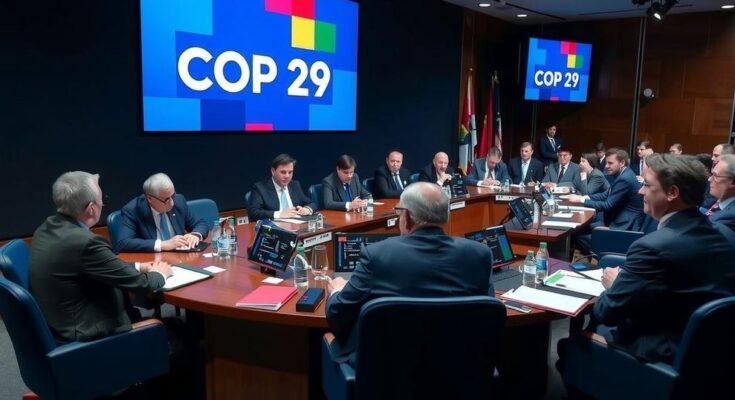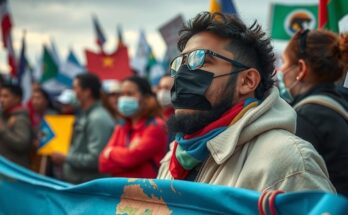COP29 in Baku emphasizes the urgency for developed nations to enhance climate finance support for developing countries amid increasing climate-related calamities, such as the floods in Spain. The current negotiations seek to establish a more robust climate financial framework, New Collective Quantified Goal (NCQG), aiming to surpass previous financial pledges. There is a strong emphasis on prioritizing human welfare over profit in the distribution of climate funds, especially in light of historical inadequacies and emerging debt crises.
The recent floods in Spain serve as a poignant reminder of the escalating effects of climate change, revealing the inadequacies of emergency response efforts in even developed nations. As global leaders convene in Baku for COP29, discussions around a new climate finance framework, known as the New Collective Quantified Goal (NCQG), take precedence. This new agreement aims to surpass the previous $100 billion annual contributions promised to support climate initiatives in developing countries, with estimates suggesting that trillions are needed for effective climate action. Developing nations are facing the dire consequences of climate change, and their financial needs for adaptation are anticipated to be staggering. The NCQG negotiations have persistently encountered a lack of agreement among nations regarding funding sources and allocation of resources. Wealthier nations have been criticized for their reluctance to lead the charge in securing funding, focusing instead on shifting responsibilities to emerging economies and placing faith in private sector contributions, which are often inadequate for the necessary scale of adaptation efforts. The framing of climate finance as a profit-seeking venture risks compromising the principles of climate justice, as vulnerable communities remain disproportionately affected. The recent history of loans masking as donations threatens to exacerbate existing debt crises in developing nations. Economists argue that genuine, grant-based funding is essential to uphold the integrity of international climate commitments. As Baku plays host to significant global discussions, the onus is on developed countries to enhance their financial contributions towards climate efforts that prioritize human wellbeing above profit maximization. The world watches closely, prepared to hold accountable those who fail in their commitments to support those enduring the frontline consequences of climate emergencies.
The ongoing COP29 discussions in Baku aim to address the need for more comprehensive climate finance mechanisms to support developing nations as they face increasing climate-related adversities. Climate catastrophes, such as the tragic floods in Spain, highlight the prevalent challenges even developed countries face in terms of preparedness and response. The international community recognizes that previous funding commitments by wealthier nations have fallen short, necessitating a new framework that not only meets identified financial needs but also respects the principles of justice and equity in climate actions, particularly for nations that are most vulnerable to environmental changes.
The COP29 negotiations represent a critical junction for climate finance, where the actions of developed nations will greatly impact the future of climate justice and support mechanisms for developing countries. In light of the significant financial requirements necessary to address climate challenges, it is imperative that these nations prioritize direct financial contributions over reliance on debt and profit-driven motives. The success of these discussions will not only shape the trajectory of international climate commitments but also define the moral responsibility of wealthier nations towards those bearing the harsh realities of climate degradation.
Original Source: www.aljazeera.com




